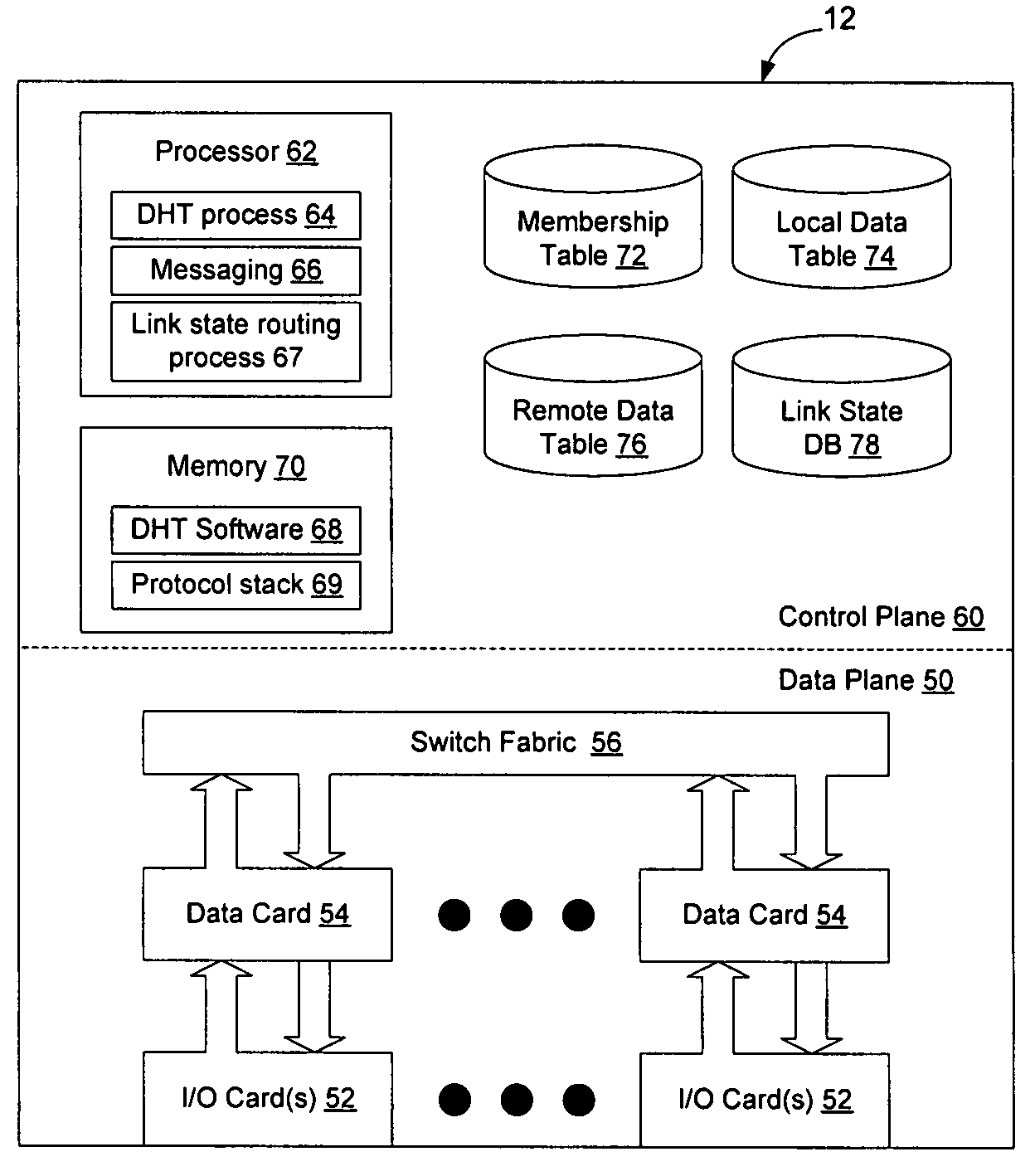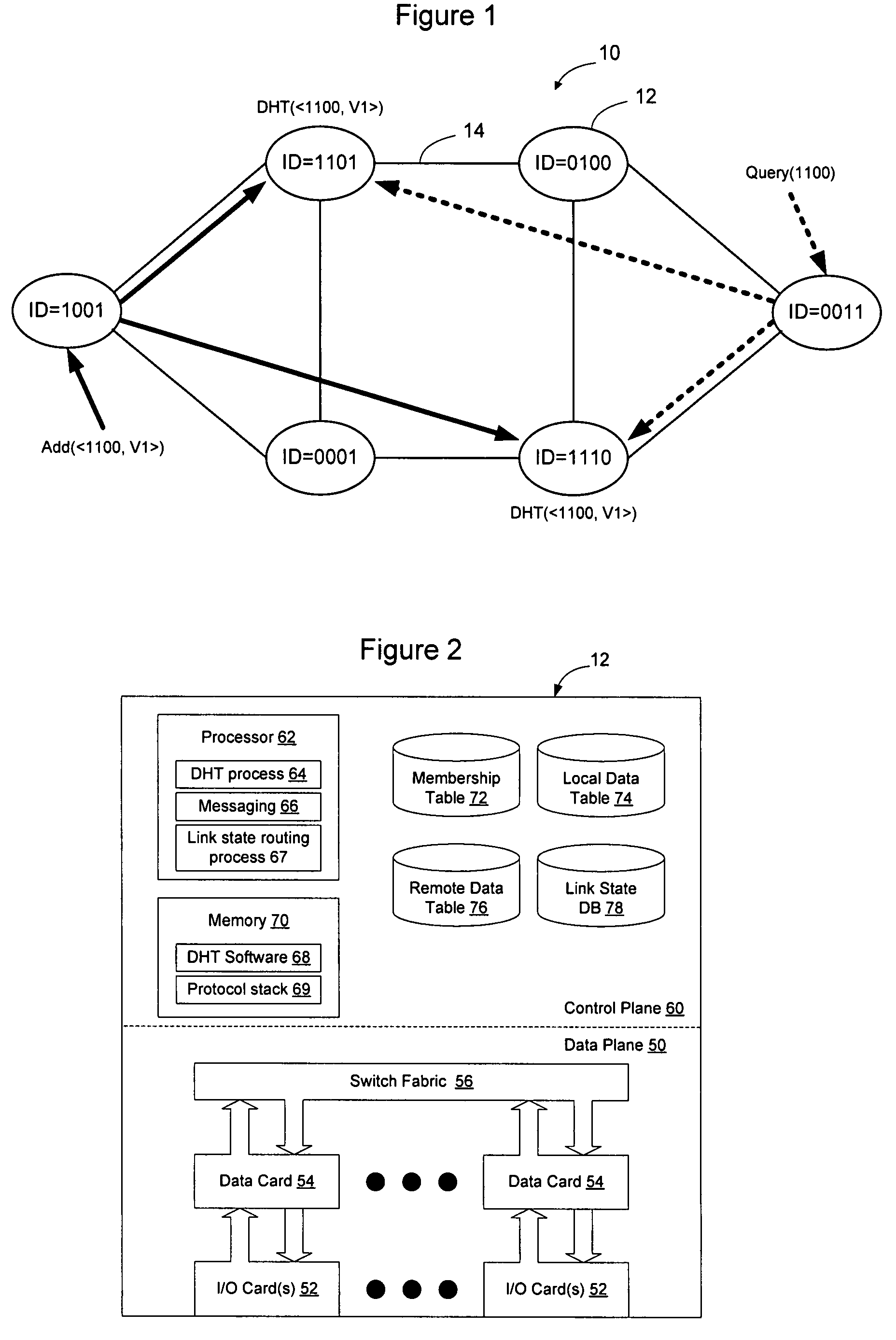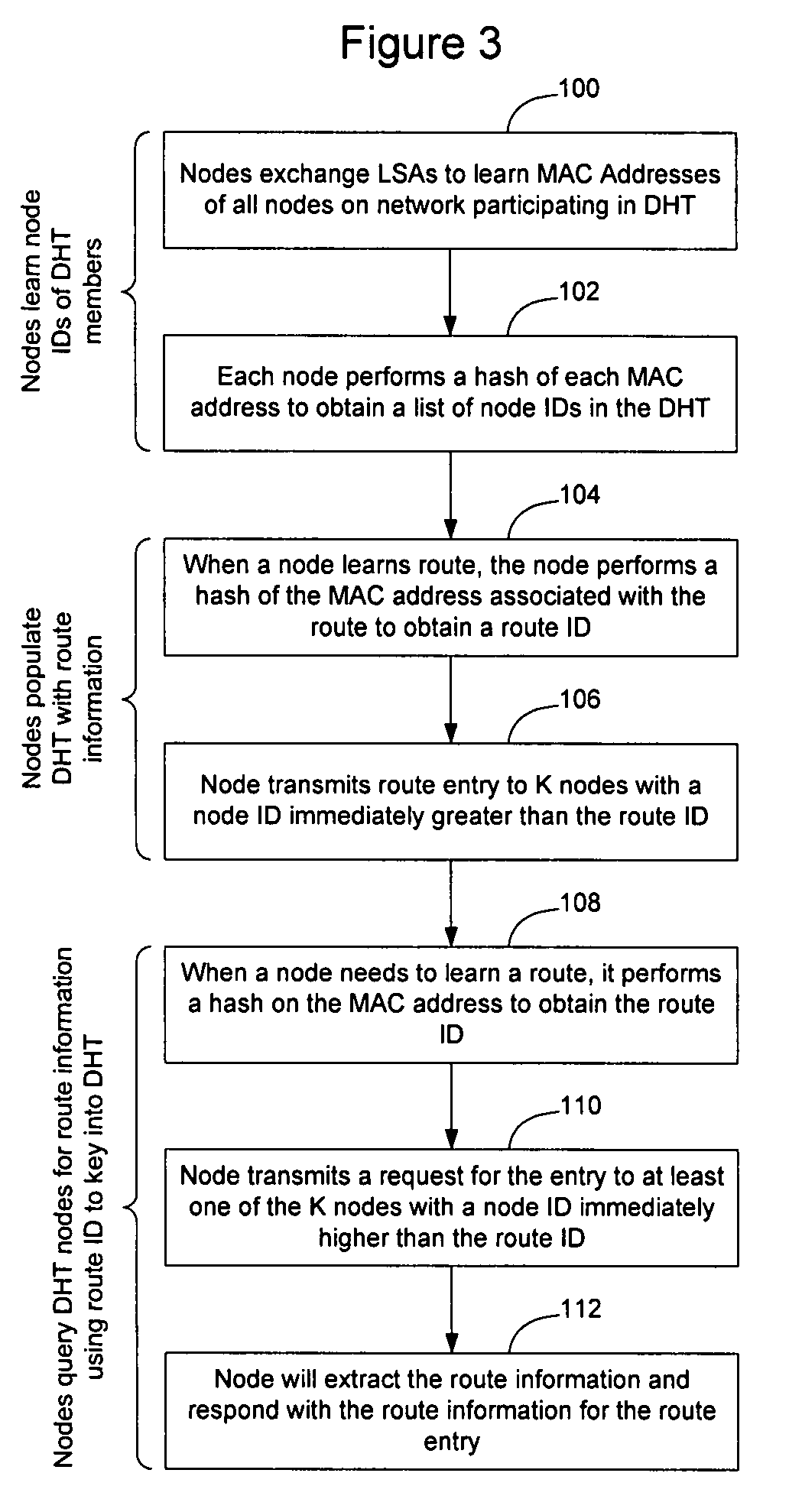Distributed storage of routing information in a link state protocol controlled network
a protocol control and routing information technology, applied in the field of routing information management, can solve the problems of dns service becoming a bottleneck on the network, inefficient, and inefficient in resolving route requests by broadcasting requests to all nodes
- Summary
- Abstract
- Description
- Claims
- Application Information
AI Technical Summary
Benefits of technology
Problems solved by technology
Method used
Image
Examples
Embodiment Construction
[0017]FIG. 1 shows an example communication network 10 in which network elements 12 are interconnected via links 14. The network elements may define an autonomous network and implement a link state routing protocol such as Intermediate System to Intermediate System (IS-IS) or Open Shortest Path First (OSPF), to enable routes between the network elements 12 to be calculated. The network elements on the network 10 will exchange hello messages to learn adjacencies between nodes and exchange link state advertisements to enable all nodes on the network to build a link state database representing the topography of the network.
[0018]Although particular emphasis will be provided in connection with describing an embodiment in which the network is an Ethernet network implementing a link state protocol to control routing on the Ethernet network, the invention is not limited in this manner as the network 10 may also be implemented as an IP network, MPLS network, or another network.
[0019]Using a...
PUM
 Login to View More
Login to View More Abstract
Description
Claims
Application Information
 Login to View More
Login to View More - R&D
- Intellectual Property
- Life Sciences
- Materials
- Tech Scout
- Unparalleled Data Quality
- Higher Quality Content
- 60% Fewer Hallucinations
Browse by: Latest US Patents, China's latest patents, Technical Efficacy Thesaurus, Application Domain, Technology Topic, Popular Technical Reports.
© 2025 PatSnap. All rights reserved.Legal|Privacy policy|Modern Slavery Act Transparency Statement|Sitemap|About US| Contact US: help@patsnap.com



